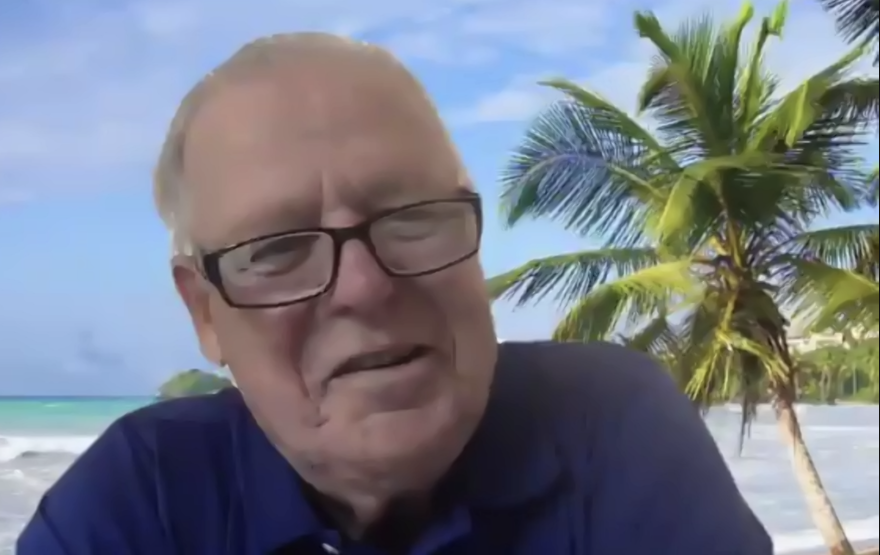Wisconsin Sea Grant is a state institution that’s been providing grant money for research, education and outreach for 50 years.
We have Robert (Bob) Ragotzkie to thank for it.
Back in 1966 when then-President Lyndon Johnson signed the National Sea Grant College no one was thinking about folding the Great Lakes into the program. Organizers had ocean research in mind. But Ragotzkie thought the country’s “inland oceans” should be included.
"He was pretty clever. He first went to Congress because Sea Grant was a congressional baby, and he got the entire Wisconsin delegation on board to really push for it," says UW-Madison emeritus professor Anders Andren.
"And then [Ragotzkie] got the rest of the Great Lakes research community involved in it, and they got their acts together and talked to their legislators to make sure that they had a place within the organization," Andren says.

In 1968 Bob Ragotzkie became the first director of the Wisconsin Sea Grant College Program. Anders Andren followed, first as associate director and later as director in 1989.
Bob Ragotzkie passed away in November 2021 at the age of 97. Anders Andren says Ragotzkie influenced his life and of many other scientists.
"I came to the University of Wisconsin in 1974, Ragotzkie was one of the interviewers. He told me about Sea Grant. Of course, I had never heard about it. I hadn't even heard about a land grant concept at the time," Andren says.
At the time, Andren says Wisconsin Sea Grant was primarily funding research in fisheries, Great Lakes nutrient issues, and aquaculture.

“I still remember when I interviewed with him, he told me ‘we don’t want to have the University of Wisconsin Sea Grant just be known as fish grant college and so we want to expand our horizon a lot,” Andren says. “So he was always on the front I think in terms of looking for new opportunities, identifying people who could help him and put new programs together.”
Jim Hurley followed Anders Andren as Wisconsin Sea Grant director in 2012. Years earlier, Hurley was a UW-Madison grad student when he met Bob Ragotzkie.
“Bob always kept his oceanographic ties. He was director of a laboratory on Sapelo Island in Georgia and that class to this day still runs that Bob got started that brings students from Madison down to Sapelo Island for a one-week field course,” Hurley says. “He designed that course, and it’s probably one of the most influential courses I’ve ever taken.”

Hurley says as his professor, Ragotzkie, taught him the importance of making lists.
"He asked me when getting equipment ready to go on that course, and he said 'where's your list,' and I told him 'I know what we need, it's right up here.' And Bob said, 'Hurley, you've got to work from lists, you've got to have lists!," Hurley adds. "My wife still jokes to this day about the lists that I always have."
Ragotzkie’s quality of being a stickler for details helped Andren learn the fine art of administration.
"I had very few ideas about how you run a big program like that, but he really taught me a lot administratively and really set the Wisconsin Sea Grant on its course of action by hiring specialists in finance. He was also a master politician to work within the University of Wisconsin and the University of Wisconsin system," Andren says. "He taught me a lot about making sure that everyone was on board before you made some decisions."
Jim Hurley says as Wisconsin Sea Grant celebrates its 50th year, it has Bob Ragotzkie to thank for it.
“If you look at the Great Lakes now, there are eight programs in the Great Lakes, and they’re all thriving, and when the Infrastructure Bill came through, there were some carve-outs there for Sea Grant because Congress knows that Sea Grant can get things done,” Hurley says.
Have an environmental question you'd like WUWM's Susan Bence to investigate? Submit below. (If the module isn't appearing, please refresh the page.)
_






